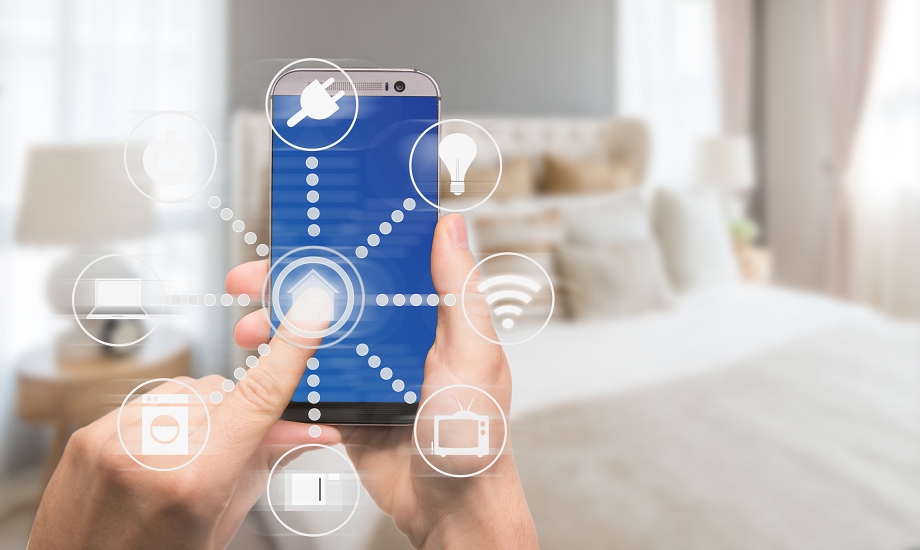
As equipment and energy costs continue to rise, more efficient HVAC systems are dominating the market. The most efficient way is to transform the industry by incorporating IoT and advanced controls. Anyone entering this occupation must understand the new technologies to troubleshoot, repair, maintain, and install advanced systems. Contact ITI Technical College today for more information about smart HVAC technology.
What Is Smart HVAC?
Smart HVAC uses IoT and advanced controls that allow you to adjust heating, air conditioning, and ventilation settings by yourself or remotely with the help of AI. System motion, noise, humidity, and thermometer sensors collect data to help adjust the thermostat(s) according to room occupancy. A hub receives, stores, and analyzes the data with the help of a local computer or a cloud server. Geo-fencing and real-time weather data are fed in from the internet for more control.
 A remote controller can be installed on virtually any smart HVAC system component, such as compressors, air handlers, and heating and cooling devices. A smartphone or tablet is used to access the HVAC system for better user control over the system. Plugging in a clever assistant like Alexa or Siri helps make controlling the IoT network more convenient.
A remote controller can be installed on virtually any smart HVAC system component, such as compressors, air handlers, and heating and cooling devices. A smartphone or tablet is used to access the HVAC system for better user control over the system. Plugging in a clever assistant like Alexa or Siri helps make controlling the IoT network more convenient.
Examples Of Smart Devices And Equipment
Many new smart HVAC devices are available today for your convenience and energy reduction. They range from simple and inexpensive to complex and more expensive products. Here are examples of what trained HVAC technicians can incorporate into your home’s system:
- Smart Thermostat for Central HVAC: You can manage your system from anywhere in the world with personalized heating and cooling set to your daily routine.
- Smart Weather Station: These devices monitor weather conditions in your town, send relevant data to your phone or other device, and provide alerts.
- Smart Ceiling Fans: Use your phone to control on and off positions, motion sensing, fan speed, and blade direction for seasonal use.
- Smart Air Purifier: You can remotely monitor your home’s air quality to know if it’s a good idea to open windows, increase fan speed for faster cleaning, or deep clean the air before you get home.
- Smart Home Humidifier: This HVAC appliance maintains your ideal humidity by adding the right amount of water in the air. It knows when to turn on and turn off.
- Smart Home Dehumidifier: Dehumidifiers are controlled with your phone to set the mode, speed, and humidity levels from anywhere. The auto-shutdown turns the device off when the water reservoir is full.
- Smart Heat Pump: Your phone can also be used for controlling heat pump settings to maximize temperature control efficiency and monitoring.
|
“Anyone entering this occupation must understand the new technologies to troubleshoot, repair, maintain, and install advanced systems” |
Why We Should Adopt Smart HVAC
Data provided by Statista shows that 9 out of 10 smart HVAC customers are satisfied with their user experience. They like advanced systems with IoT technology for these reasons:
- Better Comfort: Modern HVAC systems are highly customizable and provide more comfortable rooms. You program the system to meet your temperature and humidity levels year-round, whether you are at home or away.
- In-time Maintenance Alerts: Regular maintenance and repairs are as important for cost savings as the reduction of energy consumption. Smart systems monitor the performance of the equipment and send alerts when maintenance or repair is needed. More advanced systems alert the HVAC technicians about the issue and set an appointment with you.

- Optimization: Smart HVAC controls allow setting specific hours when the IoT monitoring system is working. Reducing system usage when you are away from home helps to avoid energy overloads on the city’s power station.
- Reduced Energy Costs: Energy costs can be reduced by programming system settings according to current occupancy in real-time, weather conditions, and level of CO2. The system consumes just enough resources as needed to do the job. Smart HVAC control can be up to 57% more efficient than manual on-off control.
HVAC Technicians Add Smart Vents To Your Smart System
The list we covered above does not include all the technology you can include in a smart HVAC system. Smart vents can help solve the most common home climate control issues. They seamlessly replace your existing floor, ceiling, or wall vents with a better system. They open and close to intelligently regulate airflow throughout the house, effectively eliminating hot and cold areas in the home.
Smart vents integrate with smart or traditional thermostats to redistribute and zone hot and cold airflow whether the home has zoning or not. A sophisticated software platform operates the vents to make home climate control easy.
Working with all these smart home variations is part of most HVAC technicians’ weekly routine. If you want professional training in this growing field, contact ITI Technical College in Baton Rouge.
For more information about graduation rates, the median debt of students who completed the program, and other important information, please visit our website: https://iticollege.edu/disclosures/





